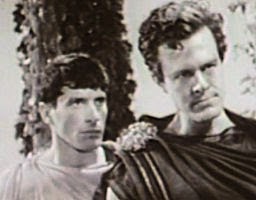A cozy is a rather demeaning lable given to a mystery that keeps the awfulest stuff and sex in the background. Most "locked room" mysteries are cozies. (Some become horror stories, but that's a cinematic detour.) The locked room mysteries were a European invention where murders happened in isolated, old manor houses or castles and all the people involved were suspects and were confined to the house or the dining room or the parlor until the murder was solved, the storm abated, or help arrived from far away.
To me the term cozy descirbed all those murder mysteries that took place in TV's Cabot Cove, Maine. So I was in the mood for something entertaining and undemanding.
I picked up Louise Penny's How the Light Gets In. Penny's books that I'd read before (Still Life and A Fatal Grace) were pretty cozy, and I expected something similar. That's not what I read.
Well, it's my fault for not reading all of the Inspector Gamache novels. One of the earlier books hinted at nefarious plots in the Quebec police department. But it sounded like office politics. How interesting could office politics be?
Well, it wasn't just office politics and How the Light Gets In isn't just a mystery and isn't quite a cozy.
A lot of the story is set in Penny's village of Three Pines (her version of Cabot Cove), but the narrative extends to Montreal and northern Quebec. One part of the story was about the death of the last of the Ouellet Quintuplets (Penny's version of Ontario's Dionne quintuplets). [The Dionne quints were a big deal for my mother who was 11 years old when the 5 little girls became popular celebrities.] If Penny had stopped with that story, the book would have been a real cozy.
But the other huge story is about political and police corruption and has its roots in Inspector Gamache's first big case thirty years earlier. Some of it is told in explanations offered by the author. But there's a LOT that's not told and that makes the ending pretty lame. Hey, Louise Penny, do you like the Improbability Prize I offer this plot?
That ending aside, Penny creates great characters and tells good stories. And the action scenes near the end of the book were good enough to convince me to finish the book early in the evening so they wouldn't keep me awake at midnight. I enjoyed this. And Inspector Gemache is likely to make a reappearance even if he's retired from the Quebec police. I'll look for another (its publication date is August 26), but I won't automatically assume it's a cozy.
Have you read How the Light Gets In? What did you think of it? Write and tell this little bit of the world what you think.
- The author's web site
- Maureen Corrigan's review in The Washington Post
- Marilyn Stasio's review in The New York Times
- Yvonne Zipp's review in The Christian Science Monitor
- Lesa's review at Lesa's Book Critiques
Okay, okay, last minute discovery. The CBC has produced a two-hour television movie of Penny's first book, Still Life. Check out the promo.





